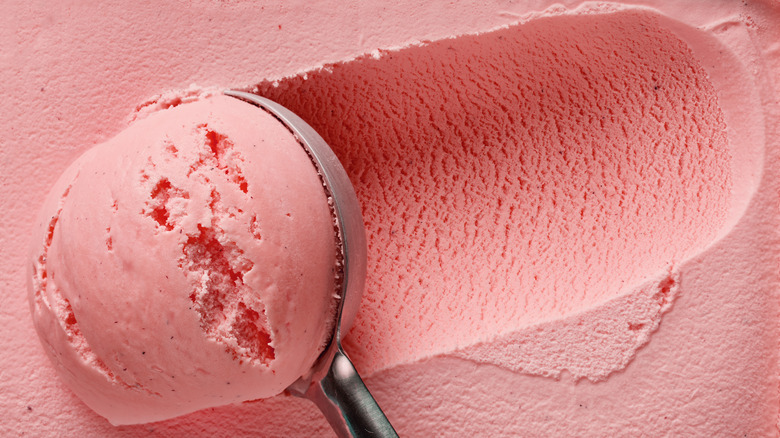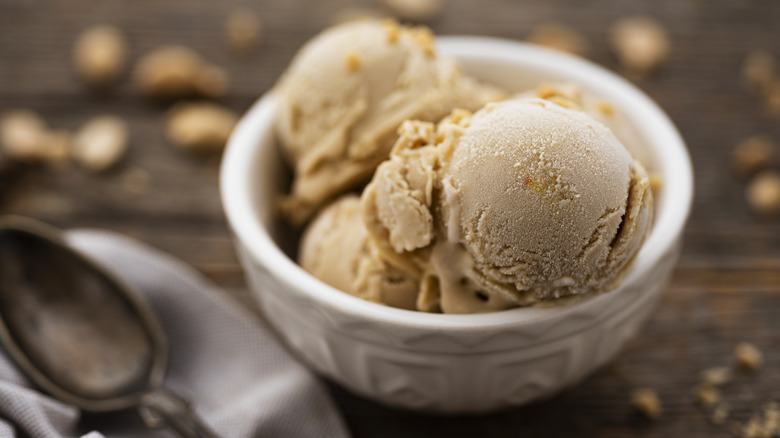How Long Does Ice Cream Last In The Freezer?
So you're staring at a half-eaten tub of ice cream that's been sitting in your freezer since who-knows-when, or an unopened pint that you bought months (or was it years?) ago. Surely you can still dig into that icy treat — after all, frozen foods do have a rather long shelf life, don't they? Well, that is true to a certain extent: Unopened ice cream can technically last indefinitely in the freezer when stored well. However, its quality will deteriorate with time.
Most ice creams have best-by rather than expiration dates. This means that they are safe to consume long after the date on the pack passes, but their taste, texture, and appearance will degrade with time. In general, unopened ice cream is at its best for eight months to a year in the freezer, or for two to three months beyond the date stamped on it. Once that window passes, you will start to notice a drop in its quality. Tubs that have been opened should be consumed within a month or two, after which you will want to throw out those half-eaten ice cream containers.
Ice cream's shelf life also depends on its ingredient list. For instance, the frozen treat will only last for about three months if it's made at home and lacks preservatives or artificial stabilizers. It will also spoil more quickly if it contains eggs, so you might want to turn that pint of ice cream into a luxurious affogato, and use it up quickly.
Ice cream's storage affects its shelf life
Storage is an important factor when it comes to shelf life. Ice cream needs to be kept at a constant 0 degrees Fahrenheit. It should also never be exposed to temperatures between 40 and 140 degrees Fahrenheit for longer than two hours, as this is the range in which bacteria can rapidly multiply. Besides, ice cream does not refreeze well once it's melted: It will lose its creamy texture, and become more gritty instead.
Another thing to be careful about is to store ice cream in airtight containers, or place a layer of wax paper or cling film between the lid and frozen treat to give it a really good seal. Once it's time to pop the tub away, remember that the door isn't the best place in your freezer to store ice cream. Instead, keep it at the back of the freezer where the temperature will be the coldest and most consistent.
It's also best to not warm spoons and scoopers in hot water when you're ladling out some of the dessert into a bowl, as doing so will leave bits of water inside that will freeze into crunchy icicles. This moisture is what leads to freezer burn — that dreaded layer of grainy frost that turns soft and fluffy ice cream into a hard and crunchy rock. It might still be safe to eat, but the crunchy crystals will certainly make the ice cream less enjoyable.


